The Criterion Channel’s October 2020 Lineup
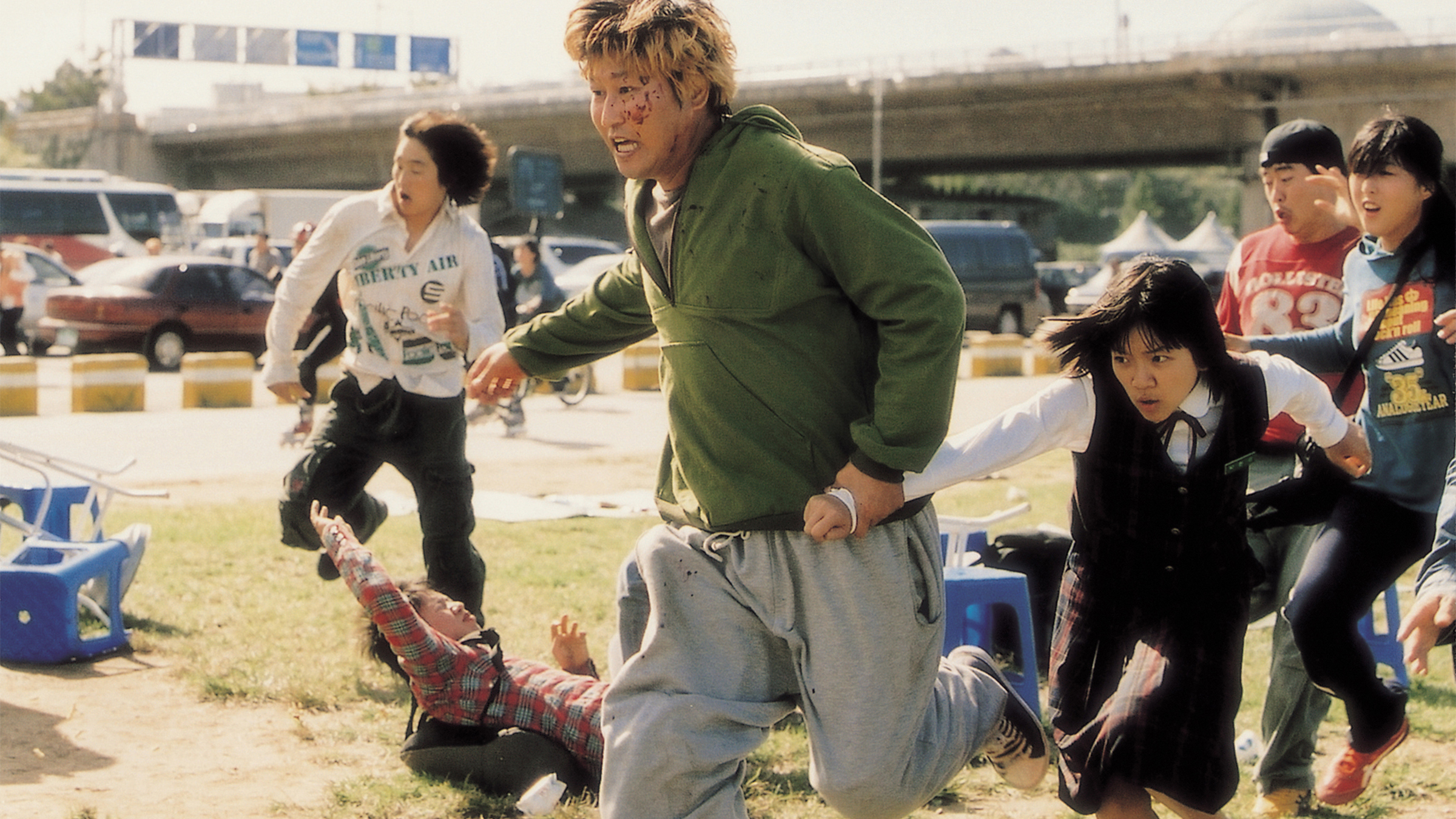
Genre fans rejoice! October kicks off with a ’70s Horror series that collects some of the grimiest, goriest, and most inventive nightmares from the decade that revolutionized the genre, and wraps up with a revelatory spotlight on the head-spinningly eclectic films of the New Korean Cinema, including three by the movement’s most internationally acclaimed ambassador, Parasite mastermind Bong Joon Ho. In between, you’ll find a career-spanning Joan Crawford retrospective, a tribute to the trailblazing Marlon Riggs, a salute to the pioneers of feminist grindhouse filmmaking, a pair of labor-struggle chronicles from Barbara Kopple, and programs dedicated to Pedro Costa, Catherine Breillat, João Pedro Rodrigues, and the groundbreaking animators Faith and John Hubley.
Now check out the full calendar!
If you haven’t signed up yet, head to CriterionChannel.com and get a 7-day free trial.
* indicates programming available November 1
** indicates programming available only in the U.S.
THURSDAY, OCTOBER 1
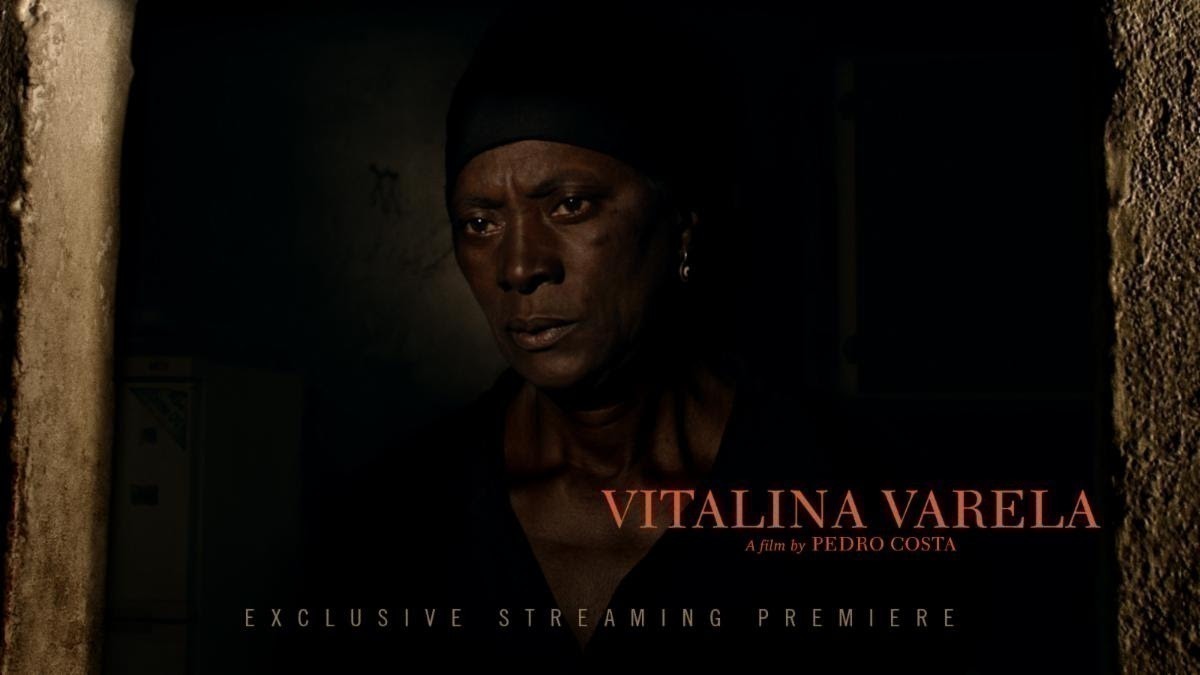
Vitalina Varela
Exclusive streaming premiereA work of deeply concentrated beauty, the latest film from Portuguese master Pedro Costa stars nonprofessional actor Vitalina Varela in an extraordinary performance based on her own life. Winner of the Golden Leopard for best film and best actress at the Locarno Film Festival, Vitalina Varela is a tour de force of shadow and whisper, a ravishing visual experience and a profoundly moving tale of human endurance.

Directed by Pedro Costa
Portuguese cinematic poet Pedro Costa makes uncompromising, seemingly daunting works that, on the surface, appear rigorously spare. Look closer, however, and they reveal untold depths of human feeling and some of the most sublime images in contemporary cinema. Frequently working with nonprofessional actors—which lends his films a documentary-like realism—Costa turns his unflinching camera on some of Lisbon’s poorest and most disenfranchised communities in endlessly rich revelations like Ossos, In Vanda’s Room, and Colossal Youth, each set in the city’s impoverished Fontainhas quarter. Though Costa has made only a handful of films since the late 1980s, each is a rare treasure that manages to find truth and beauty in the bleakest of circumstances.
Featuring: Casa de lava (1994), Ossos (1997), In Vanda’s Room (2000), Colossal Youth (2006), Vitalina Varela (2019)
FRIDAY, OCTOBER 2
Double Feature: Prying Eyes
Peeping Tom and Odd ObsessionTwo taboo-busting tales of voyeuristic obsession explore the dangers of watching and being watched.
SATURDAY, OCTOBER 3
Saturday Matinee: The Yearling
The beloved story of a boy and his fawn blazes to life in stunning Technicolor in one of the all-time great family movies.
SUNDAY, OCTOBER 4

’70s Horror
In the 1970s, everything was wilder, weirder, and more far-out—and horror movies were no exception. In North America, a new generation of maverick directors like Tobe Hooper, George A. Romero, Wes Craven, Brian De Palma, and David Cronenberg responded to the decade’s heightened political anxieties and Vietnam War–era sense of disillusionment by pushing the genre’s psychological intensity and visceral violence to shocking new heights. Across the Atlantic, Britain’s legendary Hammer Films continued to serve up old-school gothic spine-tinglers, while auteurs like Nicolas Roeg wedded spellbinding terror to art-house experimentation. Bringing together some of the decade’s most iconic slashers, chillers, and killer thrillers alongside low-budget cult rarities and camp-tastic oddities, this tour through the 1970s nightmare realm is a veritable blood feast of perverse pleasures from a time when gore, grime, and sleaze found a permanent home in horror.
Featuring: Trog (Freddie Francis, 1970), The Vampire Lovers (Roy Ward Baker, 1970), Daughters of Darkness (Harry Kümel, 1971), Let’s Scare Jessica to Death (John D. Hancock, 1971), The Nightcomers (Michael Winner, 1971), Dracula A.D. 1972 (Alan Gibson, 1972), Images (Robert Altman, 1972), Death Line (Gary Sherman, 1972), Season of the Witch (George A. Romero, 1972), The Crazies (George A. Romero, 1973), Don’t Look Now (Nicolas Roeg, 1973), Ganja & Hess (Bill Gunn, 1973), Sisters (Brian De Palma, 1973), Theater of Blood (Douglas Hickox, 1973), The Wicker Man (Robin Hardy, 1973), Black Christmas (Bob Clark, 1974), Deathdream (Bob Clark, 1974), It’s Alive (Larry Cohen, 1974), The Texas Chain Saw Massacre (Tobe Hooper, 1974), Shivers (David Cronenberg, 1975), The Tenant (Roman Polanski, 1976)*, The Witch Who Came from the Sea (Matt Cimber, 1976), The Hills Have Eyes (Wes Craven, 1977), Rabid (David Cronenberg, 1977), Coma (Michael Crichton, 1978), Invasion of the Body Snatchers (Philip Kaufman, 1978), Long Weekend (Colin Eggleston, 1978), The Brood (David Cronenberg, 1979), The Driller Killer (Abel Ferrara, 1979)
MONDAY, OCTOBER 5
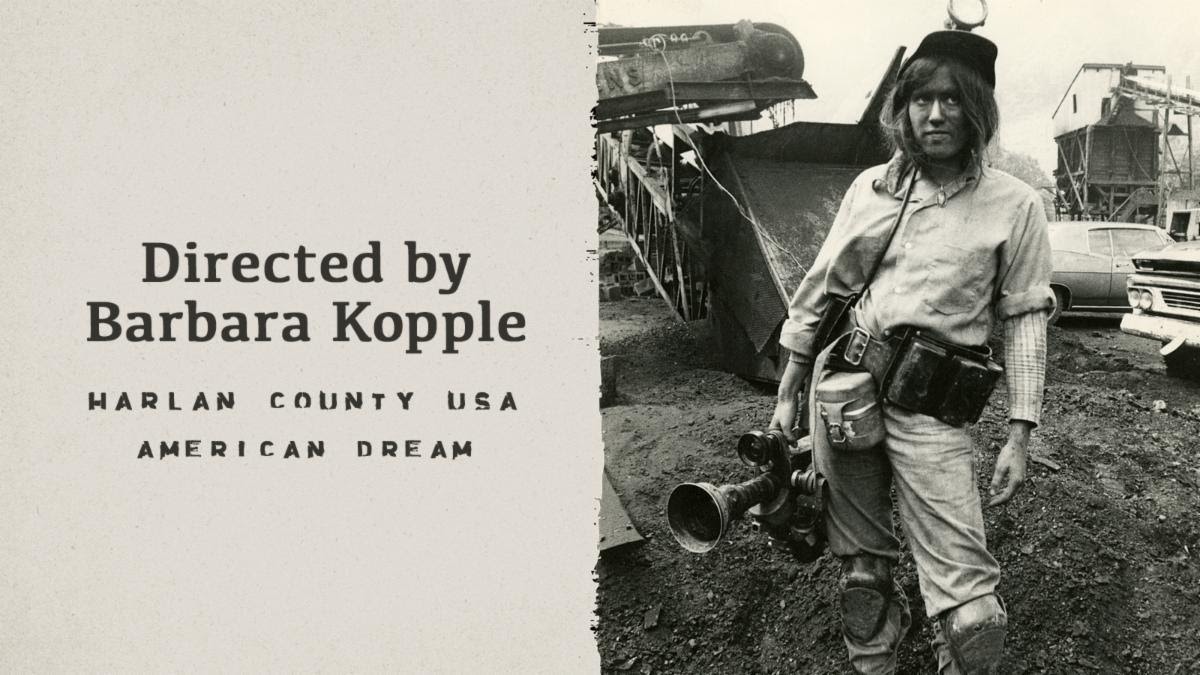
Directed by Barbara Kopple
Few figures have shaped the form of modern documentary storytelling more than Barbara Kopple, who, with her Academy Award–winning landmark Harlan County USA, fused the techniques of cinema verité with the radical spirit of 1970s political activism to create an electrifying account of a grueling, extended miners’ strike in southeastern Kentucky. Fifteen years later she won a second Oscar for American Dream, another bracing look at issues of union organizing and class struggle that, along with its predecessor, stands as one of the greatest and most trenchant films ever made about labor in the United States.
Featuring: Harlan County USA (1976), American Dream (1990)
TUESDAY, OCTOBER 6
Short + Feature: Chaos Reindeers
Deer Boy and AntichristThese darkly atmospheric fairy tales stray into the forest to explore some of the primal anxieties of parents and children.
WEDNESDAY, OCTOBER 7

We Need to Talk About Kevin**
Based on the acclaimed novel by Lionel Shriver, this gripping psychological thriller features a tour de force performance from Tilda Swinton as Eva, a mother pushed to the breaking point as she contends with the increasing malevolence of her seemingly sociopathic son Kevin (Ezra Miller).
THURSDAY, OCTOBER 8

Watching the Polls
Is it November yet? Let the countdown to election night 2020 begin with a full ballot of films showcasing the drama, dysfunction, and high-stakes tension of the American political process. From groundbreaking looks at pivotal presidential runs like the cinema verité landmark Primary (Kennedy ’60) and the eye-opening behind-the-scenes procedural The War Room (Clinton ’92) to Hal Ashby’s bitingly cynical sixties elegy Shampoo (Nixon ’68) and Robert Downey Jr.’s gonzo campaign-trail odyssey The Last Party (Clinton/Bush ’92), this winning ticket of campaign classics is an all-American ode to the once-every-four-years, can’t-look-away spectacle that is our political theater of the absurd.
Featuring: Primary (Robert Drew, 1960), The Best Man (Franklin J. Schaffner, 1964), Shampoo (Hal Ashby, 1975), The Last Party (Mark Benjamin and Marc Levin, 1993), The War Room (Chris Hegedus and D. A. Pennebaker, 1993), Election (Alexander Payne, 1999)
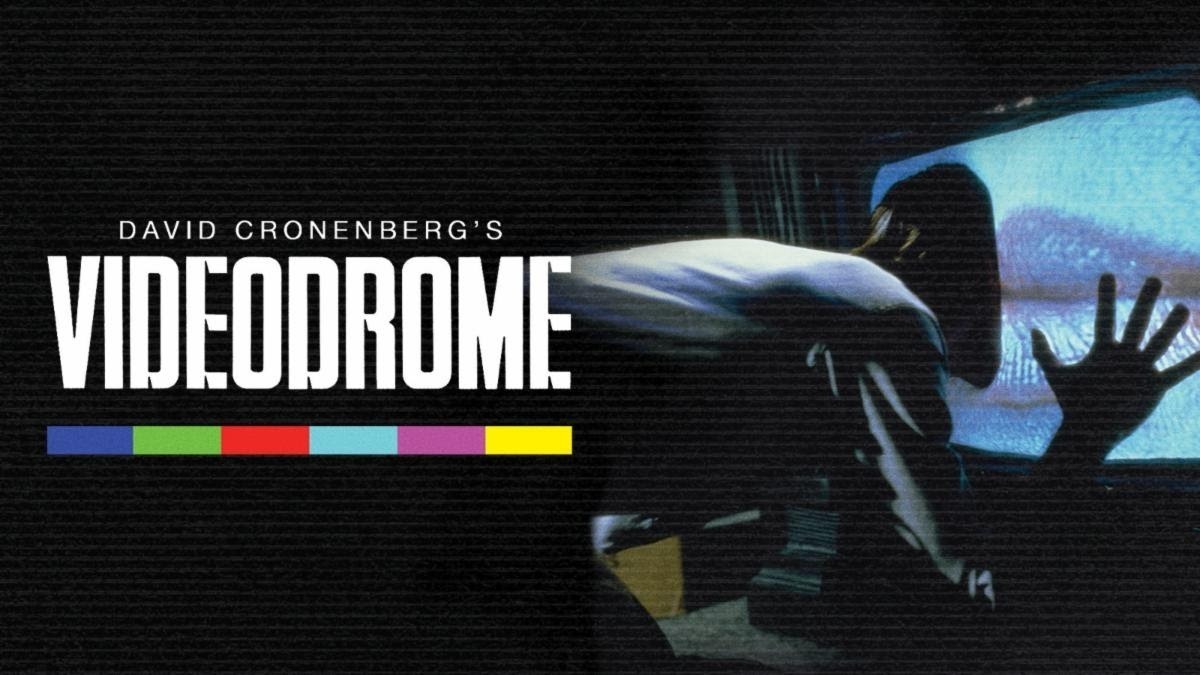
Videodrome (David Cronenberg, 1983)
Criterion Collection Edition #248
FRIDAY, OCTOBER 9
Cat People (Jacques Tourneur, 1942)
Criterion Collection Edition #833
Double Feature: Slime Time
The Blob and Beware! The Blob The viscous, gooey villain oozes its way into cult immortality in the original drive-in classic and a goofily tongue-in-cheek sequel.
SATURDAY, OCTOBER 10
Saturday Matinee: The 7th Voyage of Sinbad
The eye-popping special effects of stop motion animation wizard Ray Harryhausen dazzle and delight in this spectacular adventure fantasy.
SUNDAY, OCTOBER 11
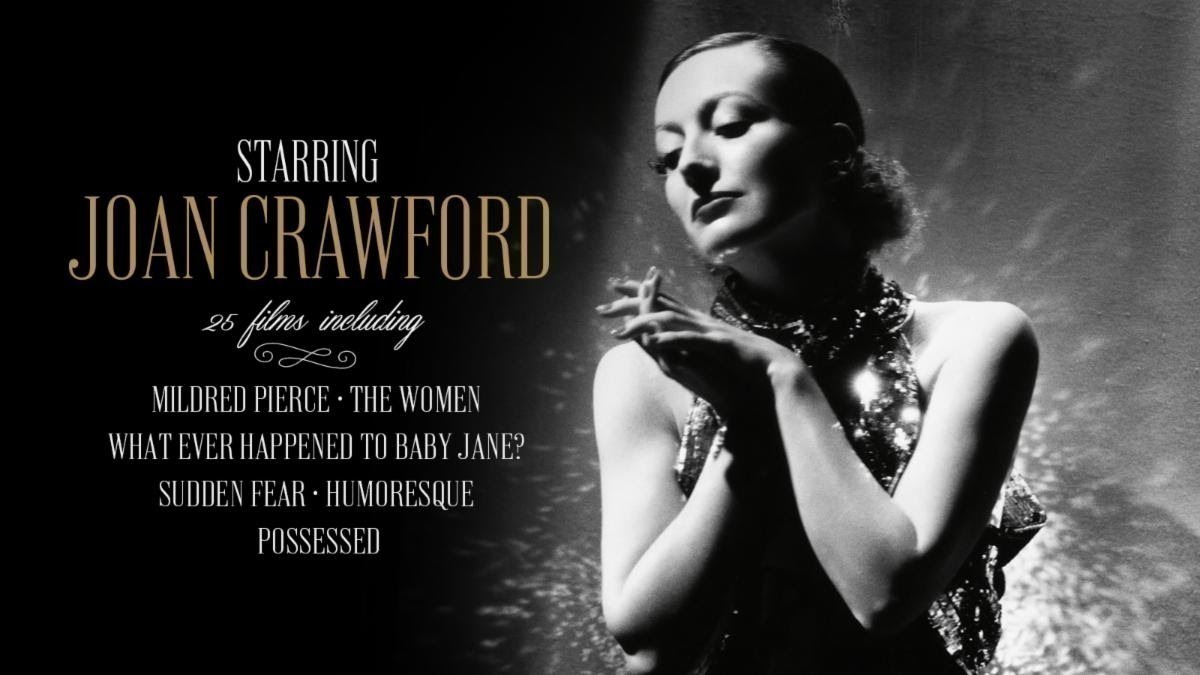
Starring Joan Crawford
Like the ambitious, upwardly mobile working women she became famous for portraying, Joan Crawford forged one of the longest-lasting and brightest-burning careers of Hollywood’s golden age through her fierce determination, dedication to her craft, and remarkable ability to continually reinvent herself. A commanding screen presence whose steely veneer and concentrated intensity could give way to tender vulnerability, Crawford endures as one of the most complex and endlessly fascinating icons of the studio era—a star in every sense of the word whose larger-than-life legend has only grown with time.
Featuring: The Unknown (Tod Browning, 1927), Our Dancing Daughters (Harry Beaumont, 1928), Our Modern Maidens (Jack Conway, 1929), Possessed (Clarence Brown, 1931), Grand Hotel (Edmund Goulding, 1932), Dancing Lady (Robert Z. Leonard, 1933), Sadie McKee (Clarence Brown, 1934), Love on the Run (W. S. Van Dyke, 1936), The Last of Mrs. Cheyney (Richard Boleslawski, Dorothy Arzner, and George Fitzmaurice, 1937), Mannequin (Frank Borzage, 1937), The Women (George Cukor, 1939), Strange Cargo (Frank Borzage, 1940), A Woman’s Face (George Cukor, 1941), Above Suspicion (Richard Thorpe, 1943), Mildred Pierce (Michael Curtiz, 1945), Humoresque (Jean Negulesco, 1946), Possessed (Curtis Bernhardt, 1947), The Damned Don’t Cry (Vincent Sherman, 1950), Harriet Craig (Vincent Sherman, 1950), Sudden Fear (David Miller, 1952), Queen Bee (Ranald MacDougall, 1955), Autumn Leaves (Robert Aldrich, 1956), What Ever Happened to Baby Jane? (Robert Aldrich, 1962), Strait-Jacket (William Castle, 1964), Trog (Freddie Francis, 1970)
MONDAY, OCTOBER 12
Town Bloody Hall (Chris Hegedus and D. A. Pennebaker, 1979)
Criterion Collection Edition #1039
TUESDAY, OCTOBER 13

Short + Feature: Someone’s Watching
Influenza and CachéThe unblinking eye of the CCTV camera is watching in two sinister explorations of surveillance, violence, and paranoia from Bong Joon Ho and Michael Haneke.
WEDNESDAY, OCTOBER 14

Films by Jenni Olson
Featuring a new introduction by OlsonThe personal and the political meet in the ruminative essay films of queer cinema memoirist Jenni Olson. Interweaving reflections on landscapes (particularly those of her longtime home city of San Francisco), lesbian identity, sexuality, and cinema, Olson’s searching, slyly self-deprecating film diaries take the viewer down a dizzying array of intellectual rabbit holes. Drawing on her deep knowledge of film history, Olson suffuses her works with allusions to classic Hollywood cinema (notably Alfred Hitchcock’s Vertigo in her latest feature, The Royal Road), bringing dream-factory fantasy into intimate dialogue with the contemporary queer experience.
Features: The Joy of Life (2005), The Royal Road (2015)
Shorts: Blue Diary (1998), 575 Castro St. (2009), In nomine Patris (2019)
THURSDAY, OCTOBER 15
Trouble in Paradise (Ernst Lubitsch, 1932)
Criterion Collection Edition #170
FRIDAY, OCTOBER 16

Double Feature: Twisted Sister
What Ever Happened to Baby Jane? and SistersSibling bonds turn sour in this diabolical double bill—a showdown between Joan Crawford and Bette Davis paired with Brian De Palma’s voyeur horror.
SATURDAY, OCTOBER 17
Saturday Matinee: Buck Privates
Comedy legends Bud Abbott and Lou Costello turn the military inside out in this infectiously madcap World War II musical farce.
SUNDAY, OCTOBER 18

Race, Sex & Cinema: The World of Marlon Riggs
Featuring a new conversation between guest programmer Ashley Clark and filmmakers Vivian Kleiman and ShikeithFilmmaker, gay-rights activist, poet, professor, provocateur: the late, great Black artist Marlon Riggs (1957–94) spoke truth to power through his work in bracingly eloquent fashion. Working at the height of the AIDS crisis and the conservative culture wars of the 1980s and early ’90s, Riggs—who was diagnosed with HIV in 1988—defied a culture of silence and shame to create formally innovative, often joyously expressive works about race, sexuality, identity, and representation that collapsed the divide between personal essay and documentary. Curated by guest programmer Ashley Clark, and based on the series of the same name that took place at Brooklyn Academy of Music in February 2019, Race, Sex & Cinema: The World of Marlon Riggs is a comprehensive retrospective of an essential artist whose work, more than twenty-five years after his death, remains every inch as resonant.
Features: Ethnic Notions (1986), Tongues Untied (1989), Color Adjustment (1992), Black Is . . . Black Ain’t (1994), I Shall Not Be Removed: The Life of Marlon Riggs (Karen Everett, 1996)
Shorts: Long Train Running: A History of the Oakland Blues (Marlon Riggs & Peter Webster, 1981), Affirmations (1990), Anthem (1991), Non, je ne regrette rien (No Regret) (1993)

Inspired by Marlon Riggs
In 1994, Marlon Riggs died from AIDS at the tragically young age of thirty-seven. Riggs’s untimely passing robbed the world of an artist of uncommon vision and empathy, but not of his work’s ability to galvanize and inspire future generations. This program comprises a selection of stylistically and thematically diverse short films by contemporary Black and queer artists who have taken cues from Riggs to create works of empathy, playfulness, and intellectual rigor. From soul-searching dance to sensual drama, erotic expression to self-acceptance, these films are infused with Riggs’s generous spirit.
Featuring: Walk for Me (Elegance Bratton, 2016), 100 Boyfriends Mixtape (Brontez Purnell, 2016), A Drop of Sun Under the Earth (Shikeith, 2017), The Labyrinth 1.0 (Tiona Nekkia McClodden, 2017), A Guide to Breathing Underwater (Raven Jackson, 2018)
MONDAY, OCTOBER 19
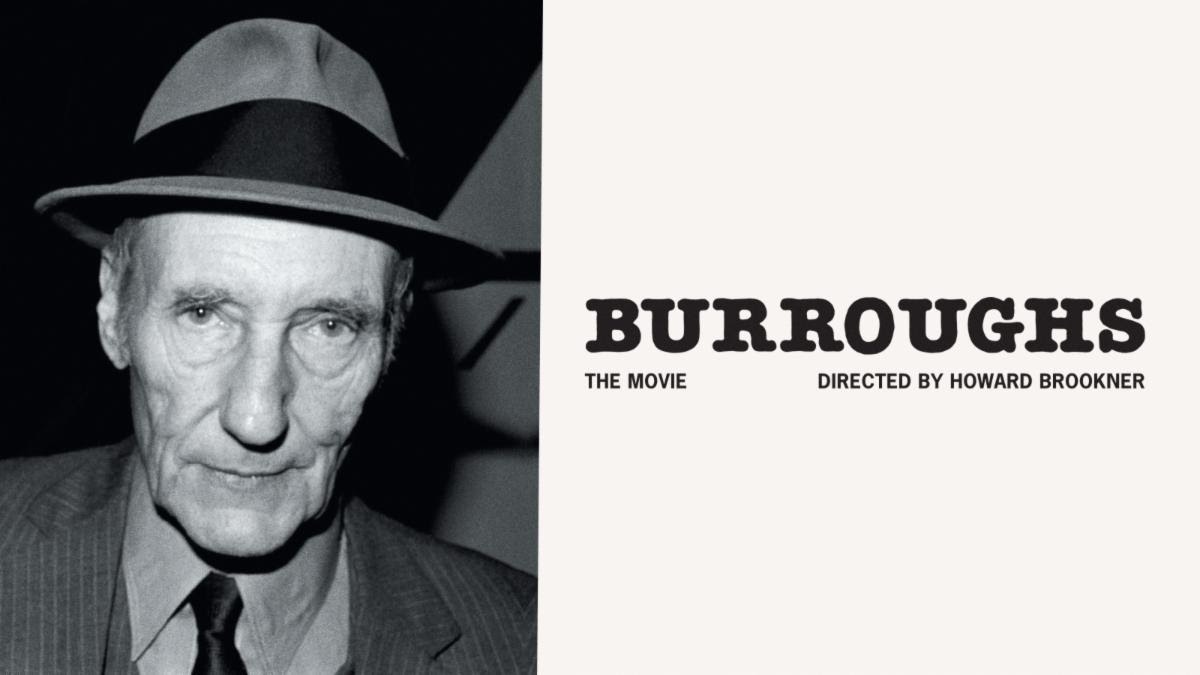
Burroughs: The Movie (Howard Brookner, 1983)
Criterion Collection Edition #789
TUESDAY, OCTOBER 20
Short + Feature: Let’s Talk About Sex
Dirty and WeekendTwo nuanced, emotionally raw queer romances get real about the intricacies of love, sex, and relationships.
WEDNESDAY, OCTOBER 21

Women Filmmakers of New World Pictures
In the history of American independent cinema, few studios have assumed the legendary cult status of New World Pictures, the production company cofounded by pop-cinema wizard Roger Corman in 1970. Specializing in grindhouse sleaze staples like biker and women-in-prison films, the studio was a training ground for many up-and-coming New Hollywood mavericks, including a handful of trailblazing women who infused the company’s exploitation formula with a startling antipatriarchal punch. Films like Stephanie Rothman’s feminist social-issue drama The Student Nurses, Amy Holden Jones’s slasher-with-brains Slumber Party Massacre, and Penelope Spheeris’s punk rebel yell Suburbia stand out as fascinating examples of how the transgressive pleasures of exploitation cinema can be wedded to a subversive approach to gender and genre.
Featuring: The Student Nurses (Stephanie Rothman, 1970), The Velvet Vampire (Stephanie Rothman, 1971), Humanoids from the Deep (Barbara Peeters and Jimmy T. Murakami, 1980), Slumber Party Massacre (Amy Holden Jones, 1982), Suburbia (Penelope Spheeris, 1983)
THURSDAY, OCTOBER 22

Directed by João Pedro Rodrigues
Featuring Where Are You, João Pedro Rodrigues?, a short self-portrait by the director from 2016Sexy, cerebral, and transgressive, the films of Portuguese auteur João Pedro Rodrigues are fearless explorations of queer identity, alienation, and desire that reach for—and frequently attain—the transcendent. Fascinated by the tension between the carnal and the spiritual, Rodrigues has explored the extreme limits of both in daring tales of physical and psychic transfiguration like his startling debut, the grimy erotic shocker O Fantasma, and most recent feature, the iconoclastic modern-day religious odyssey The Ornithologist. Teeming with some of the most striking and extravagant images in contemporary cinema, Rodrigues’s films are unforgettable feasts for the eyes as well as the intellect.
Featuring: O Fantasma (2000), Two Drifters (2005)**, To Die Like a Man (2009)**, The Ornithologist (2016)**
FRIDAY, OCTOBER 23
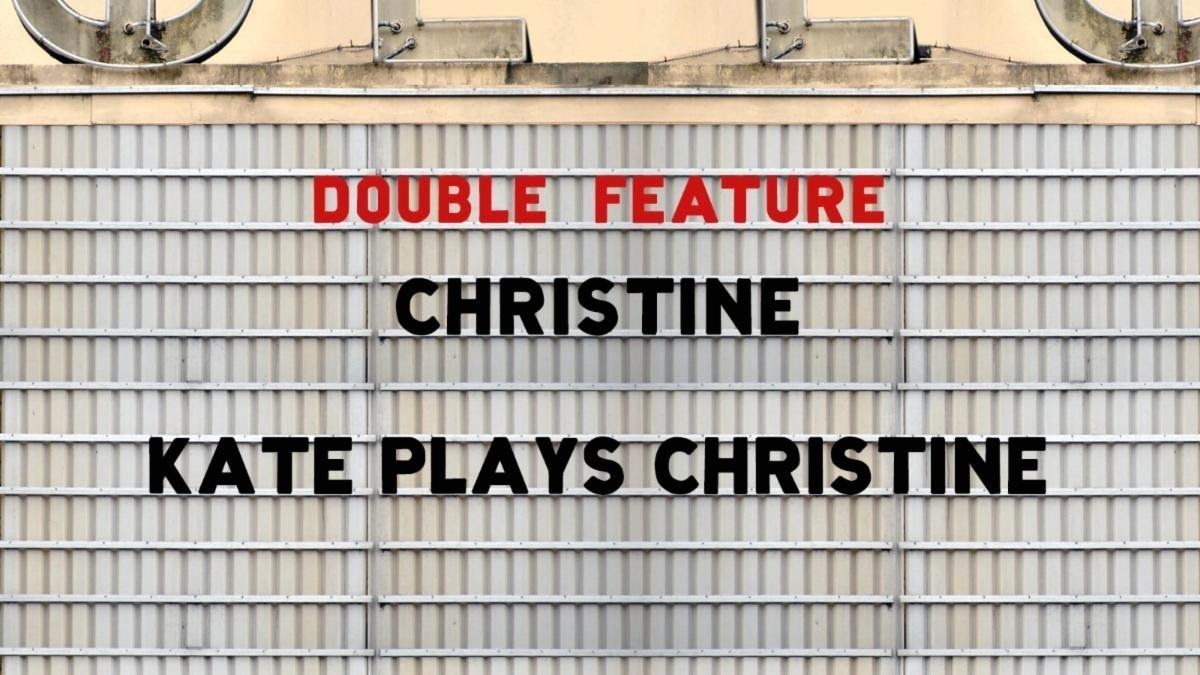
Double Feature: Woman on the Edge
Christine and Kate Plays ChristineTwo films—one a powerfully empathetic narrative, the other a radically experimental documentary—grapple with one of the most shocking and tragic incidents in television history.
SATURDAY, OCTOBER 24

Saturday Matinee: Kirikou and the Sorceress
West African folktales come to life through exquisite hand drawn animation in this wondrously imaginative adventure.
SUNDAY, OCTOBER 25
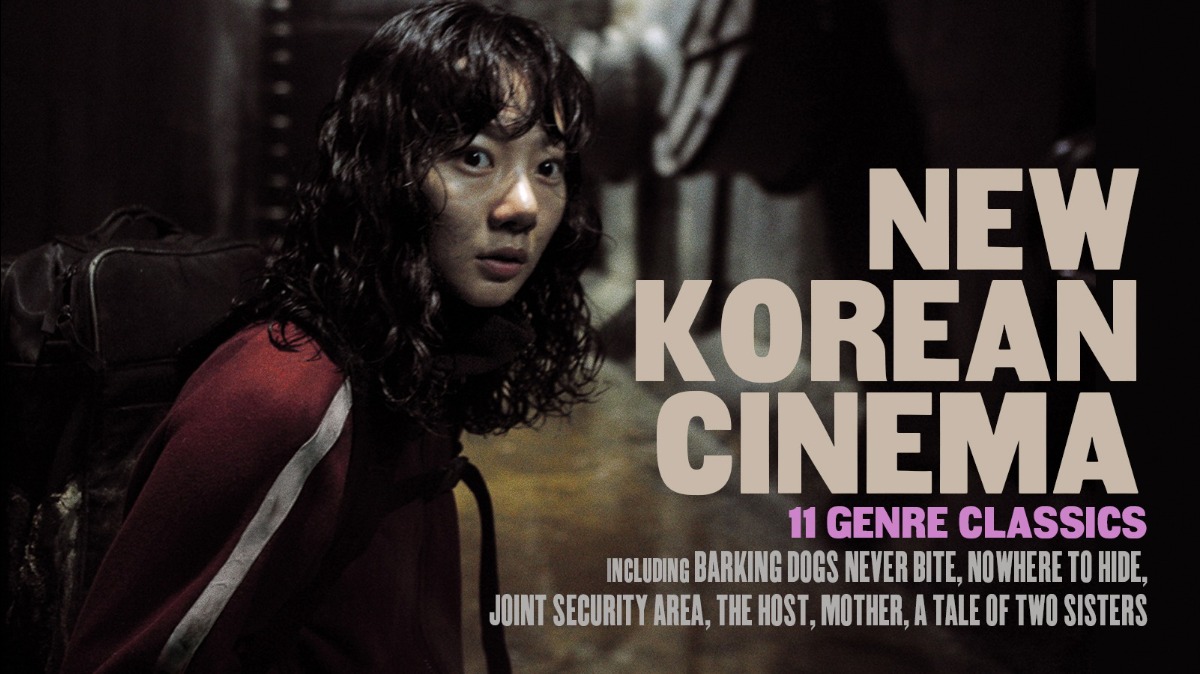
New Korean Cinema
Featuring a new introduction by critic Grady Hendrix and a conversation between directors Bong Joon Ho and Park Chan-wookAs Korean pop culture continues its worldwide ascent, now is a perfect time to catch up with the wild, genre-defying pleasures of the seemingly unstoppable movement known as the New Korean Cinema. Bringing together essential works by major directors like Bong Joon Ho, Park Chan-wook, Kim Jee-woon, and Ryoo Seung-wan, this sampler of modern classics and cult favorites spotlights the innovative artists who have powered the commercial and creative renaissance that completely transformed South Korea’s film industry from the mid 1990s through the late 2000s. Characterized by an ingenious mixing and subversion of genre conventions and an effortless blending of art-house and commercial sensibilities, these visceral, audaciously constructed films deliver both high-octane thrills and biting social and political critiques of contemporary Korean life.
Guest programmed by Goran Topalovic, cofounder of Subway Cinema and the New York Asian Film Festival.Featuring: The Quiet Family (Kim Jee-woon, 1998), Nowhere to Hide (Lee Myung-se, 1999), Barking Dogs Never Bite (Bong Joon Ho, 2000)**, The Foul King (Kim Jee-woon, 2000), Joint Security Area (Park Chan-wook, 2000), Sympathy for Mr. Vengeance (Park Chan-wook, 2002), A Tale of Two Sisters (Kim Jee-woon, 2003), Crying Fist (Ryoo Seung-wan, 2005), Lady Vengeance (Park Chan-wook, 2005), The Host (Bong Joon Ho, 2006)**, Mother (Bong Joon Ho, 2009)**
MONDAY, OCTOBER 26

Dear Zachary: A Letter to a Son About His Father
A murder, a child, and the father he’d never know: this emotionally stunning documentary reveals a wrenching family tragedy in the form of a heartfelt home movie.
TUESDAY, OCTOBER 27
Short + Feature: Booze and Blood
It’s Not Just You, Murray! and The Public EnemyThe colorful exploits of bootlegging gangsters are recounted with plenty of stylistic flash and punch by two titans of American cinema.
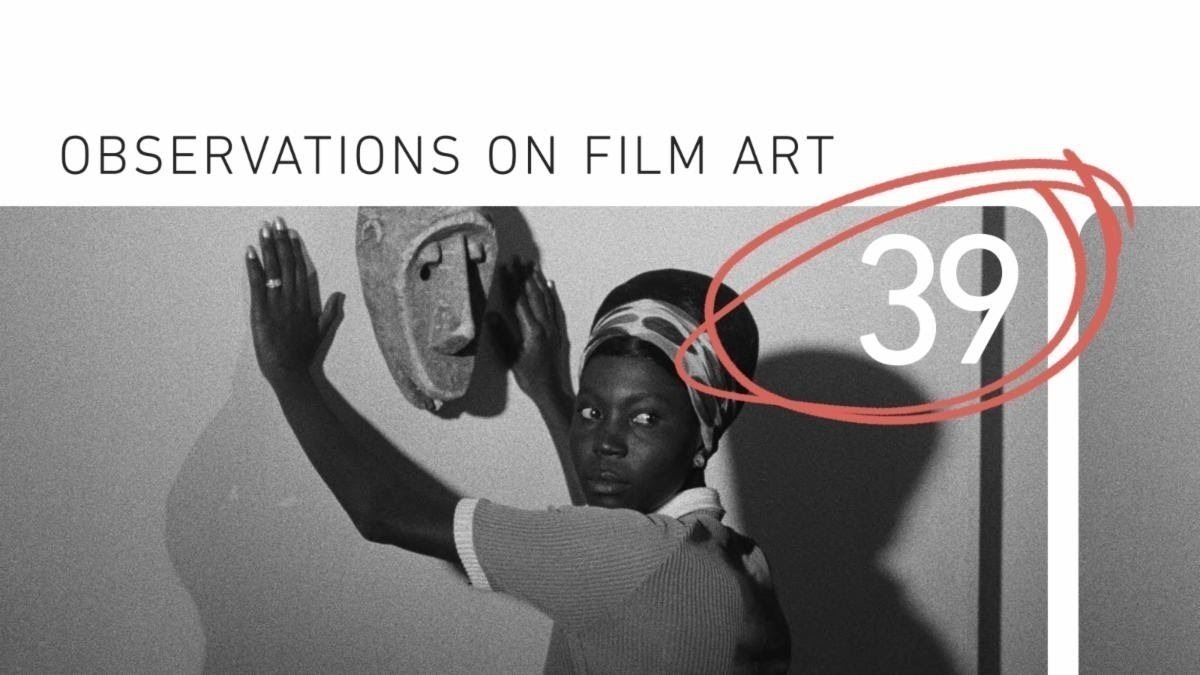
Observations on Film Art #39: The Voice in Ousmane Sembène’s Black Girl
In his watershed feature debut Black Girl, master director Ousmane Sembène offers a searing critique of colonialism’s legacy via the story of Diouana, a young Senegalese woman whose new life in France working for a white family gradually reveals itself to be a trap. In this edition of Observations on Film Art, Professor Jeff Smith deconstructs Sembène’s multilayered use of dialogue and language, exploring how the central character’s outward terseness (what the director called “a defensive muteness”) contrasts with the film’s use of voice-over, which makes the viewer privy to Diouana’s inner thoughts as she grows increasingly disaffected with her situation.
WEDNESDAY, OCTOBER 28

Directed by Catherine Breillat
Shattering taboos with her unflinching, often shocking explorations of female sexuality and pleasure, Catherine Breillat emerged as one of the major voices of the New French Extremity, a movement defined by its transgressive focus on the corporeal realms of eroticism and violence. The two are inextricably linked in her daring body of work, which encompasses the controversial exploration of female desire. Breillat fearlessly delves into the intricacies of eroticism, power, and sexual politics, forcing viewers to confront that which makes them most uncomfortable and radically redefining the depiction of the female body on-screen.
Featuring: Romance (1999), Fat Girl (2001), Bluebeard (2009)**, Sleeping Beauty (2010)**, Abuse of Weakness (2013)**
THURSDAY, OCTOBER 29

Six Films by Faith and John Hubley
Featuring a conversation among the filmmakers’ children Mark, Emily, Georgia, and Ray Hubley, moderated by filmmaker Leah ShoreA pair of Hollywood exiles—she was a former sound-effects and script clerk at Columbia, he was an ex–Disney cartoonist and union activist blacklisted for refusing to name names before the House Un-American Activities Committee—Faith and John Hubley left behind the mainstream to forge a thrillingly experimental animation style all their own. Channeling the influences of jazz and abstract expressionism, the husband-and-wife duo created strikingly hand-drawn and -painted works that pulse with the improvisational spirit of bebop (Date with Dizzy, a sly anticapitalist critique featuring Dizzy Gillespie) and childhood imagination (Moonbird, which sets a recording of their own children at play to free-flowing animation). Applying their effortlessly light touch to weighty themes like atomic-age anxiety and the place of humankind in the universe, the Hubleys helped usher in a new era of independent animation in which Disneyfied gloss gave way to gloriously unrestrained personal expression.
Features: Of Stars and Men (1961), Everybody Rides the Carousel (1976)
Shorts: Date with Dizzy (1955), Tender Game (1958), Moonbird (1959), The Hole (1962)
FRIDAY, OCTOBER 30
Double Feature: Twice Bitten
Nosferatu and Nosferatu the VampyreThe undead spirit of F. W. Murnau’s indelibly creepy German Expressionist landmark lives on in Werner Herzog’s mesmerizing homage.
SATURDAY, OCTOBER 31
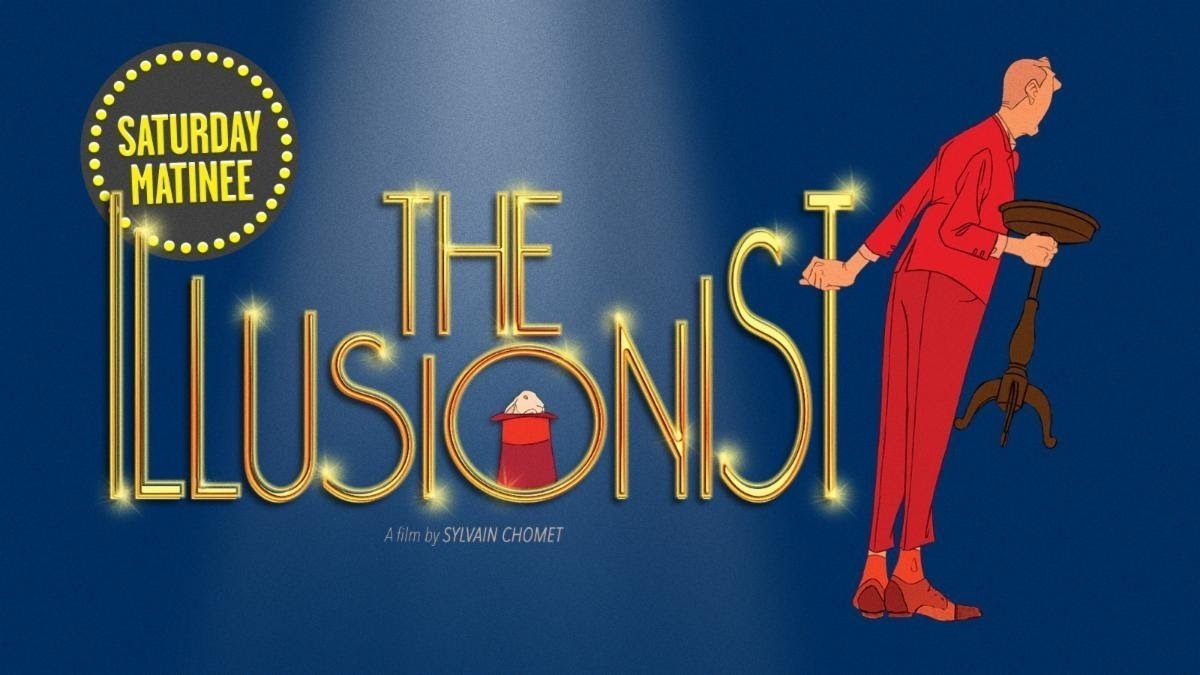
Saturday Matinee: The Illusionist**
An unproduced script by Jacques Tati is brought to life with elegantly bittersweet whimsy by acclaimed animator Sylvain Chomet.

The Devil’s Backbone (Guillermo del Toro, 2001)**
Criterion Collection Edition #666



